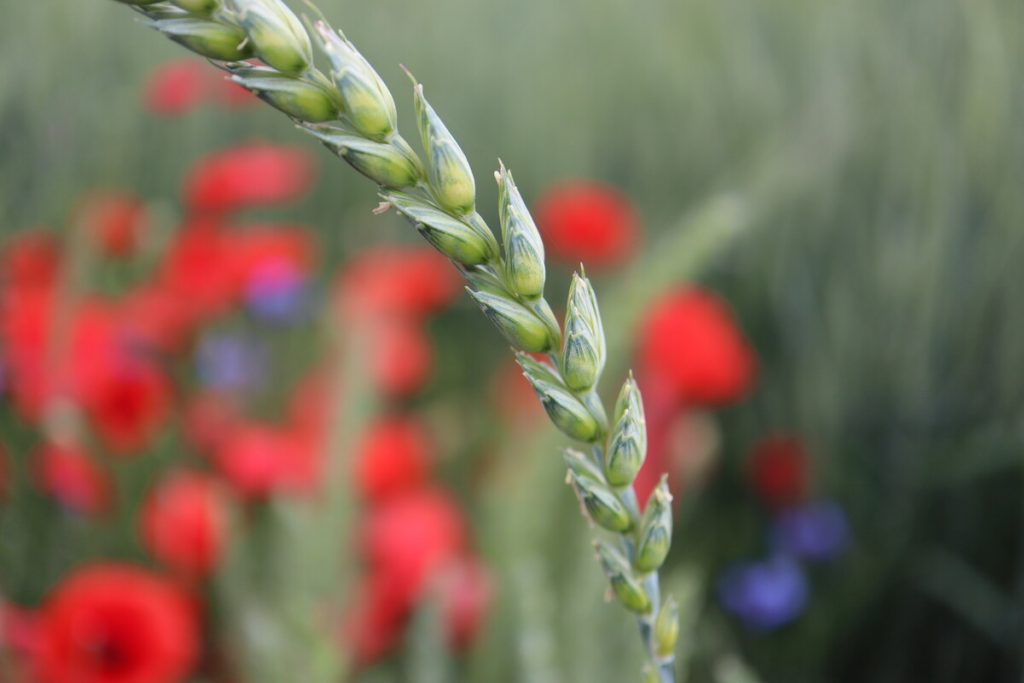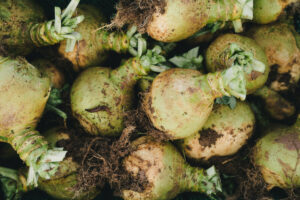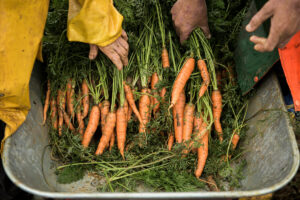More biodiversity: how biodynamic farming increases the diversity on our fields
Biodynamic farming understands the mutual interdependencies in the ecosystem and collaborates with all of nature’s stakeholders. Biodiversity is essential for biodynamic farmers worldwide, so they create habitats for all living things on their farms – from the smallest insect to the largest animal and all the life in-between. Biodynamic farming restores fertility, sequesters carbon, and regenerates soil, insect, plant, and animal life.
Biodiversity protection
Biodiversity is one of the most important foundations for life. It is key not only for agricultural production but also for nature and humankind. However, in recent decades we have witnessed a collapse of biodiversity which threatens the stability and regenerative capacity of our ecosystems. This means that our environment has less resilience in the face of climate change, soil degradation and desertification.
Agriculture is one of the main causes of biodiversity loss. The use of chemical pesticides and synthetic nitrogen fertilisers, land consolidation, drainage and the use of heavy machinery have proved to be major drivers in biodiversity collapse and have led to the disappearance of some species from our landscapes and to many more species under threat.
Therefore, it is crucial to act now before we reach a point of no return. The Biodynamic Federation Demeter International advocates drastic change in our current food production systems to prevent further loss of habitats and diversity. Stable and diverse agricultural ecosystems that enhance biodiversity must be promoted through political action before it is too late.
Enhancing biodiversity
The Federation has always been committed to biodiversity. Demeter standards even stipulate that a minimum of 10% of farm land must be dedicated to biodiversity areas.
But biodynamic farming goes beyond this to value wild species of plants and animals and to integrate them into agricultural practice.
Biodynamic farmers cannot use chemical herbicides and synthetic chemical pesticides to solve systemic problems, instead they are challenged to work with biodiversity, understanding the role of species in the environment and searching for balance and integration between wild and cultivated species. This leads to an average of one third more wild species and twice as many individuals than on conventionally farmed land. This is true for birds and insects but also soil organisms such as earthworms and ground beetles which are crucial for soil fertility. The incorporation of organic matter, gentle soil cultivation and diverse crop rotations work together to improve soil structure which avoids erosion and silting at the same time as supporting biodiversity. So it is not only the inclusion of semi-natural areas and the establishment of hedges, field margins, wildflower strips, orchards and pastures that are higher on biodynamic land to serve as a habitat and refuge for many animal species but also the farm management practice which really supports biodiversity.
Diversity is not only valued in the wild aspects of the farm but also plays a key role in biodynamic farming in the cultivated plants and animal husbandry. Traditional livestock breeds are valued for their adaptation to the local environment, their resilience and often their flavour. Regional diversity is important in both animals and plants to preserve culture and tradition. Maintaining a rich diversity of genetics is essential to maintain seed sovereignty but also to maintain flexibility in the challenges that face agriculture today.
As essential as biodiversity is for life, it is essential for biodynamic farming. Only by preserving our biodiversity through a thoughtful collaboration with nature, biodynamic farmers can practice farming to its full potential.
We should preserve every scrap of biodiversity as priceless while we learn to use it and come to understand what it means to humanity.
Edward Osborne Wilson, biologist, naturalist and writer
Meet the makers!
In Demeter agriculture we consider biodiversity playing an essential role. With Demeter farmer Alexander Thierfelder from Dorfgemeinschaft Tennental in South Germany.
Biodiversity is essential
Biological diversity means collaborating with nature’s stakeholders



